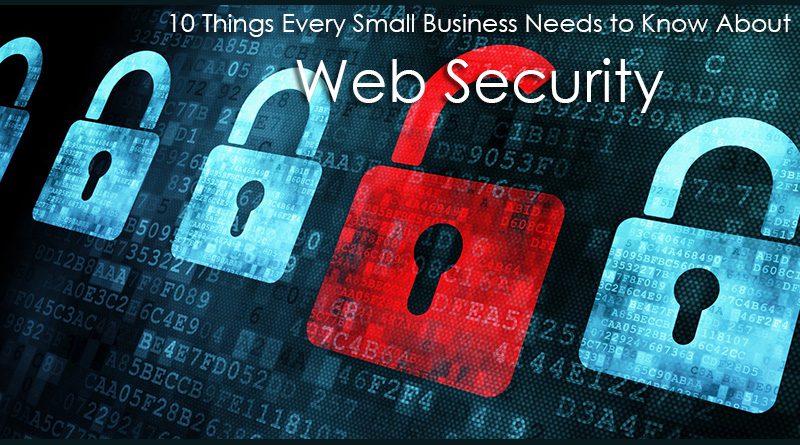10 Things Every Small Business Needs to Know About Web Security
Despite the fact cyber criminals have mainly targeted multinational companies in high-profile hacking incidents over the past couple of years, this doesn’t mean to say small businesses are immune to this threat.

After all, a survey by Kaspersky Lab found that small businesses shell out an average of $38,000 to recover from a single data breach. This amount only climbs when indirect expenses and damage to reputation are taken into account too. So, to protect your business from online offenders, here are 10 things you need to know about web security.
-
Understand where your most important data is stored
Regardless of whether its on desktop computer hard drives or in the private cloud with VPS, it is imperative you know the location of your most crucial documentation and data. This allows you to then come up with appropriate access permissions and security controls.
-
Recognise the reasons for online attacks
Cyber criminals are only interested in achieving maximum gains for as little investment as possible and will work together to increase their bottom line. Online attacks are almost always automated too, scanning and probing thousands of websites every minute. Weaknesses will be exploited.
-
Employees could be your biggest vulnerability
If one of your employees opens up a “phishing” email containing an attachment laden with malware, hackers can easily infiltrate your computer systems and IT infrastructure. Therefore, you should educate your workforce about the nature of modern cyber attacks and develop a company-wide Internet usage policy.
-
Exercise tight control over access
Think carefully about what information your members of staff really need access to and put tight controls on your most valuable files or folders. Consider asking for more than just a username and password, such as two-factor authentication.
-
Don’t overlook basic security measures
Things like firewalls for wireless and wired-based access points as well as anti-malware on endpoints and servers remain resolute forms of defence in the face of increasingly advanced cyber attacks.
-
Remember to keep systems and software up-to-date
Vendors of operating systems and anti-virus software are constantly releasing updates and patches to address the vulnerabilities that hackers are attempting to exploit. So, always keep your systems and software up-to-date.
-
Prevent hackers from accessing customer data
If customers hand over their credit card details when making a purchase online, make sure hackers cannot access this confidential information. For small businesses with tight budgets, third-party payment processing firms are the most cost-effective option.
-
Staff smartphones and tablets are a big weakness
Even though an increasing number of employees are using smartphones and tablets for work-related activity, this gives cyber criminals a route into your system, as they are more vulnerable to attack than devices already connected to your network. Introduce software that encrypts email traffic and monitors suspicious activity.
-
Utilise the power of automation
Software that scans website vulnerabilities will enable you to fix problems before they are exploited by hackers, while comment spam tools prevent bots from posting malicious links to any of your pages. These examples of automation can take care of security threats so you don’t have to.
-
Acknowledge the fact web security is constantly changing
Today’s strongest security defences could be rendered useless tomorrow if hackers successfully break their way through. Therefore, always be mindful of the fact that web security can change at a moment’s notice.
